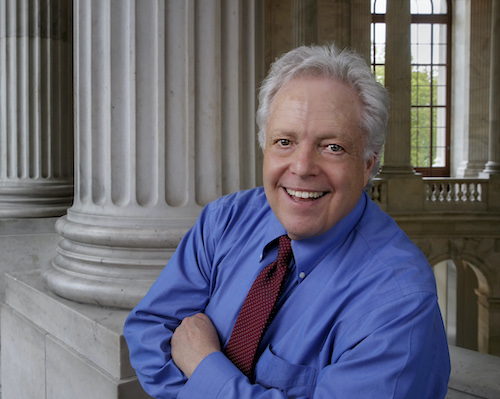WKU alumnus receives Freedom of the Press award

Photo courtesy of WKU News.
September 30, 2021
Editor’s Note: The previous version of this story contained the incorrect use of “alumni.” The story has been corrected. The Herald regrets the error.
WKU alumnus J. Scott Applewhite received a 2021 Freedom of the Press award for his photojournalism achievements.
The Reporters Committee announced the recipients for the Freedom of the Press awards on July 27, 2021. The Reporters Committee is an organization that helps and protects journalists and the values of the first amendment.
The committee provides legal guides and resources for reporters to help them understand their rights. Every year, the committee gives out awards to the leaders in the legal and media field. The committee does this to show recognition to the leaders for embodying and representing what the First Amendment means.
Applewhite is a former College Herald Heights staff member. He is a senior photojournalist at the Associated Press, where he covers Congress. He has been with the Associated Press for forty years. He’s also been on the Reporters Committee executive board for a few years.
“This year they added my name to the list, it was a bit of a surprise,” Applewhite said. “I think one of the reasons that they gave me this honor was a combination of a lifetime of things and I think what stood out for them this year was my coverage of January 6 attacks at the capital.”
Many journalists were there that day to cover the attacks. Applewhite was inside the capitol, in the House of Representative chamber where the electoral college was meeting. He had refused to leave during the evacuation and covered what went on inside.
Applewhite dedicates everything he learned about standing up for the rights of journalists and the first amendment to the College Heights Herald and Bob Adams.
“He was my contemporary when I was there and a student advisor,” Applewhite says. “I always told him in the same way my questions, my enthusiasm, and my curiosity was never turned away there, I would never turn away a reporter or photographer especially if they had questions.”
Applewhite follows Bob Adams influence with always being accepting of questioning journalists.
Applewhite states most of what he does is fanatic, but he has done amazing conflict coverages overseas.
“I’ve done conflict coverage overseas, covered a few wars, and maybe a lifetime of experience prepares you for knowing when it’s important to stay and cover it,” Applewhite said. “It’s never easy for journalists or for new photographers, it’s their job to show people what they can’t see on their own.”
Applewhite applies this in his everyday work. He tries to show people what they don’t see with the coverage and photos he takes. He gives people an accurate, honest record of what happened and what he saw.
“It’s easy because the Associated Press makes it easy,” Applewhite said. They have very high standards and hold their photographers to the same level of accuracy and integrity as their reporters.”
Applewhite went into photography through the College Herald Heights. He met some inspiring young photographers, who took him under their wing along with Bob Adams, and they helped put out the newspaper together.
He was my contemporary when I was there and a student advisor. I always told him in the same way my questions, my enthusiasm, and my curiosity was never turned away there, I would never turn away a reporter or photographer especially if they had questions.
— J. Scott Applewhite
At that time WKU did not have an accredited journalism program, they had a mass communications program, but it seemed to be more focused on broadcast. The photojournalism program came while he was still in school.
Applewhite ended up getting an internship at the Courier Journal and then went on to work for other newspapers before ending up at Associated Press. He’s been at Associated Press since 1980 and covers many of the political aspects of journalism and daily life.
“For political journalism, I’m lucky that I get to do it,” Applewhite said. “It’s an important part of culture, the coverage of it is a very important part of our current events. What political photography does need is photojournalists to be able to pull the curtain back and show the reader an accurate and informed view of what’s really going on. Our obligation to be honest, accurate brokers of information for the American Public.”
News reporter Makaio Smith can be reached [email protected]. Follow her on Twitter @MakaioSmith























